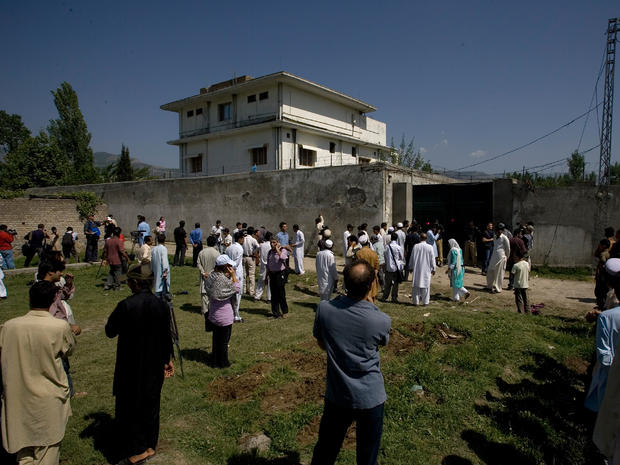Treasure trove of al Qaeda intel combed for gold
In what could be one of the biggest single intelligence hauls since the U.S. first declared war on Islamic extremists, officials are combing over thousands of electronic files and paper documents seized in the raid in Pakistan that killed Osama bin Laden.
CBS News correspondent Bob Orr reports the computers, files, hard drives and other evidence confiscated from the bin Laden compound are being analyzed at the FBI's forensic lab in Quantico, Va. The CIA, which has the lead in analyzing the data, has set up a task force comprised of analysts from multiple disciplines.
The CIA will share any relevant findings with other intelligence agencies, though it's not clear how much of the information (if any) will be shared with the public. Officials will not comment on the quantity or quality of the material. But, one said, "We expect to find some good stuff."
The trove of materials collected from the compound where bin Laden had lived the last 5 or 6 years includes 10 hard drives, five computers and more than 100 storage devices like disks, DVDs and thumb drives, in addition to many paper documents as well, CNN reports.
While those examining the material will certainly not be publicly revealing its contents anytime soon, the wealth of documents both could and should yield at least some information on the remaining al Qaeda operatives, their plans, their network, their recruitment efforts, their movements, as well as other operational matters.
In addition to providing much sought-after intelligence on the remaining al Qaeda operatives, U.S. officials say the data will be combed to provide some insight over the controversy surrounding Pakistan's role in bin Laden sheltering there. Specifically, officials are hoping the documents will explain how exactly bin Laden lived in Pakistan for so long undetected.
Video: CIA director on capturing bin LadenHow did bin Laden resist Navy SEALs without a weapon?
Special section: the Killing of Osama bin Laden
"(Intelligence experts) are trying to determine themselves whether or not there were individuals within the Pakistani government or military intelligence services who were knowledgeable about bin Laden's residence there and whether or not they were providing support," John Brennan, Obama's counterterrorism advisor, said, according to al Jazeera.
If the CIA task force proves that the material is a fruitful as some expect, Richard Haass, president of the Council on Foreign Relations, told the Toronto Star that the "intelligence harvest" could ultimately prove "as important if not more important than the actual killing of bin Laden."
